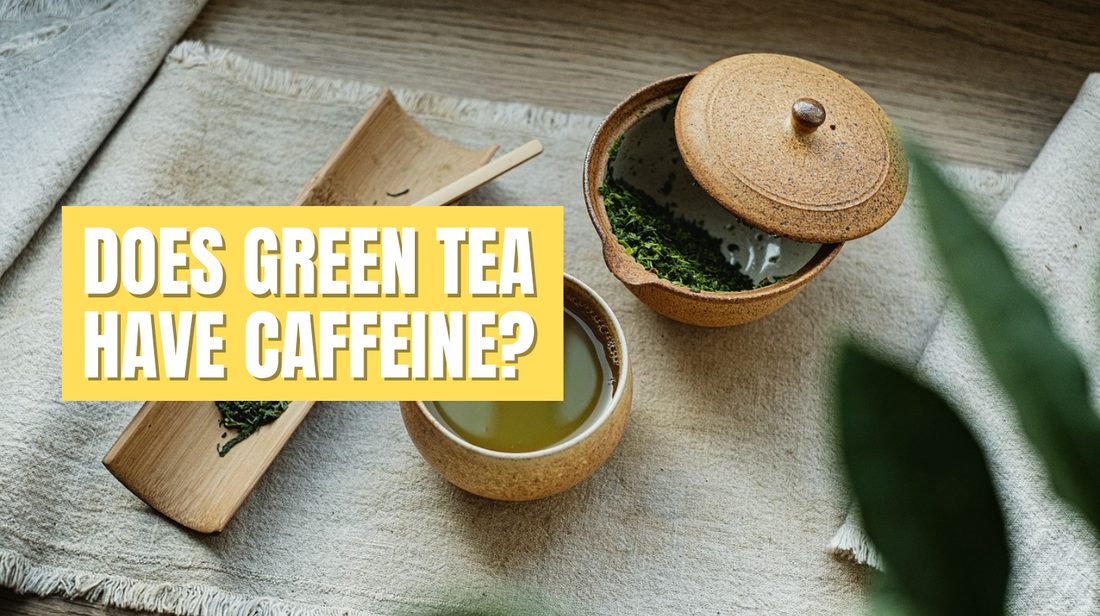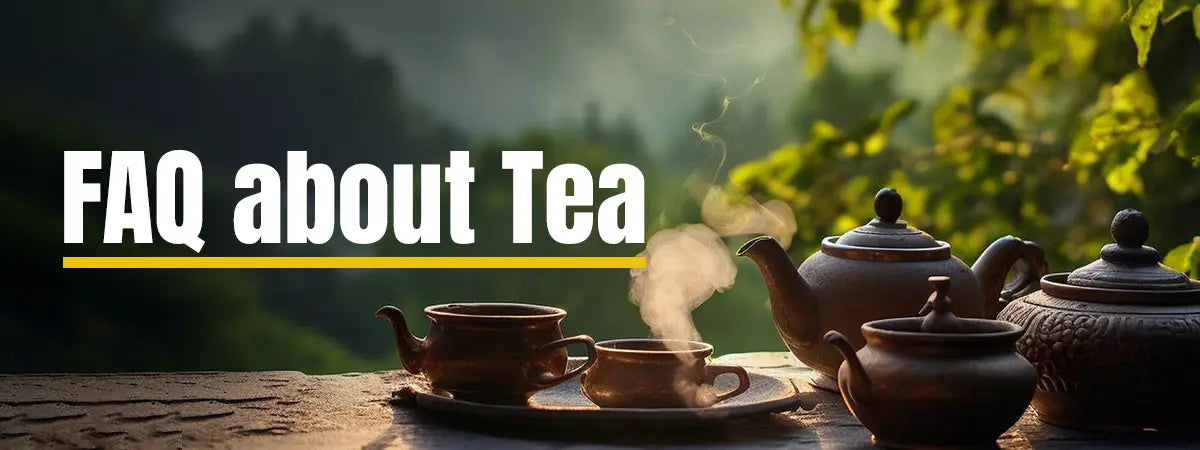
Does Green Tea Have Caffeine? Truth You Need to Know
When you think of green tea, you probably imagine a steaming cup of earthy, soothing goodness — or maybe an iced version on a hot day. It’s often marketed as a “healthy” drink, the go-to for wellness enthusiasts, and even the secret behind some people’s calm, Zen-like energy.
But one question pops up over and over: “Does green tea have caffeine?”
Short answer? Yes, it does.
But don’t worry — we’re diving into the details to explain how much caffeine is in green tea, how it compares to coffee, and whether it’s something to be concerned about. Spoiler alert: green tea might just be the gentle pick-me-up you didn’t know you needed.
So, Does Green Tea Have Caffeine?
Yep, green tea does contain caffeine. But here’s the good news: it’s nowhere near as much as a cup of coffee.
Quick Facts:
- A cup of green tea (8 oz) typically has 20–45 mg of caffeine.
- A cup of coffee? Around 95–200 mg of caffeine.
That’s less than half the caffeine of coffee. So, if you’re sensitive to caffeine but still want a little boost, green tea might be the perfect middle ground.
Why Does Green Tea Have Caffeine in the First Place?
Caffeine isn’t something added to green tea — it’s naturally there because of the tea plant it comes from, called Camellia sinensis. This plant produces caffeine to protect itself from pests (yep, caffeine is basically a natural bug repellent).
When tea leaves are processed to make green tea, the caffeine stays. However, the amount of caffeine can vary depending on a few factors:
- Type of Green Tea: Organic Green Tea, for example, has typically mild caffeine ranging 20-45 milligrams per 8-ounce cup.
- Brewing Time: The longer you steep the tea, the more caffeine gets released.
- Water Temperature: Hotter water extracts more caffeine.
What Makes Green Tea’s Caffeine Different?
Even though green tea has caffeine, it doesn’t hit you like coffee does. That’s because of an amino acid called L-theanine.
- Coffee: Fast energy spike, followed by a crash
- Green Tea: Smooth, steady energy without the jitter.
L-theanine helps your body process caffeine more slowly, giving you a calm focus instead of feeling wired. It’s like having energy with a built-in chill pill.
How Does Green Tea’s Caffeine Affect You?

The Good Stuff:
- Increased Focus: Caffeine + L-theanine = sharper concentration without the anxiety.
- Boosted Metabolism: Caffeine can slightly increase calorie burning (hello, metabolism boost!).
- Mood Lift: A gentle pick-me-up to fight that afternoon slump.
The Not-So-Great Stuff (If You Overdo It):
- Trouble Sleeping: Drinking green tea late in the day can mess with your sleep.
- Jitters (Rare): Only if you’re super sensitive to caffeine or drink a ton of it.
- Upset Stomach: On an empty stomach, green tea’s caffeine might feel a bit harsh.
When’s the Best Time to Drink Green Tea?

To get the benefits without the downsides, timing is key.
Best Times:
- Morning: A gentle wake-up without the coffee crash.
- Early Afternoon: Perfect for fighting post-lunch drowsiness.
Avoid Drinking:
- Late at Night: Even though it has less caffeine, it can still keep you up.
- On an Empty Stomach: Might cause nausea for some people.
Different Types of Green Tea & Their Caffeine Levels
Not all green tea is created equal. Some types have more caffeine than others.
-
Matcha (Highest Caffeine) — 60–70 mg per cup
Made from finely ground powdered tea leaves, so you’re consuming the entire leaf. This makes it the most energizing green tea. -
Gyokuro (Higher Caffeine) — 35–50 mg per cup
A shade-grown Japanese green tea that develops a rich umami flavor and higher caffeine content due to its growing process. -
Sencha (Moderate Caffeine) — 30–40 mg per cup
Japan’s most popular green tea, known for its bright, grassy taste and refreshing aroma. -
Himalayan Green Tea / Nepal Green Tea (Moderate Caffeine) — 25–40 mg per cup
Grown at high altitudes in Nepal, this tea has a smooth, floral flavor and a caffeine level similar to Sencha. -
Bancha (Lower Caffeine) — 15–20 mg per cup
Made from older, more mature tea leaves, resulting in a milder taste and lower caffeine content. -
Decaffeinated Green Tea — 2–5 mg per cup
Not completely caffeine-free but contains only trace amounts.
| Find Best Himalayan Green Teas |
Can You Reduce the Caffeine in Green Tea?
Yes! Here are some simple hacks:
- Shorten Brew Time: Steep for 1–2 minutes instead of 3–5.
- Use Cooler Water: Hotter water pulls out more caffeine.
- Try Decaf Green Tea: It’s not totally caffeine-free, but it’s close.
- Opt for Bancha or Hojicha: These teas naturally have less caffeine.
Final Thoughts: Should You Worry About Caffeine in Green Tea?
Green tea does have caffeine, but it’s not something to stress about. It’s much lower than coffee and comes with the bonus of L-theanine, which helps you feel focused without the jitters.
If you’re looking for a drink that gives you a little boost without the crash, green tea might be your new best friend. It’s calming, refreshing, and packed with health benefits. Just be mindful of how much you drink, especially later in the day.
So, next time someone asks, “Does green tea have caffeine?” you’ll not only know the answer, but you’ll probably be sipping a cup while explaining it.

Frequently Asked Questions (FAQs) About Green Tea and Caffeine
1. Does green tea have more caffeine than coffee?
Nope! Green tea has much less caffeine — about 20–45 mg per cup, compared to 95–200 mg in coffee.
2. Is green tea caffeine-free?
No. Unless it’s labeled as decaffeinated, all green tea contains some caffeine.
3. Can I drink green tea before bed?
If you’re sensitive to caffeine, it’s better to avoid green tea in the evening. Try herbal tea instead.
4. How much green tea is safe to drink daily?
Most people can safely drink 3–4 cups a day. If you’re sensitive to caffeine, stick to 1–2 cups.
5. Does decaf green tea still have caffeine?
Yes, but very little — usually around 2–5 mg per cup.
6. Can green tea make you jittery?
It’s rare because green tea’s caffeine is balanced by L-theanine, which promotes calmness. But if you’re very sensitive, it’s possible.
7. What’s the difference between matcha and regular green tea in terms of caffeine?
Matcha has more caffeine because you’re drinking the entire powdered leaf, not just an infusion. Expect around 60–70 mg per cup.










